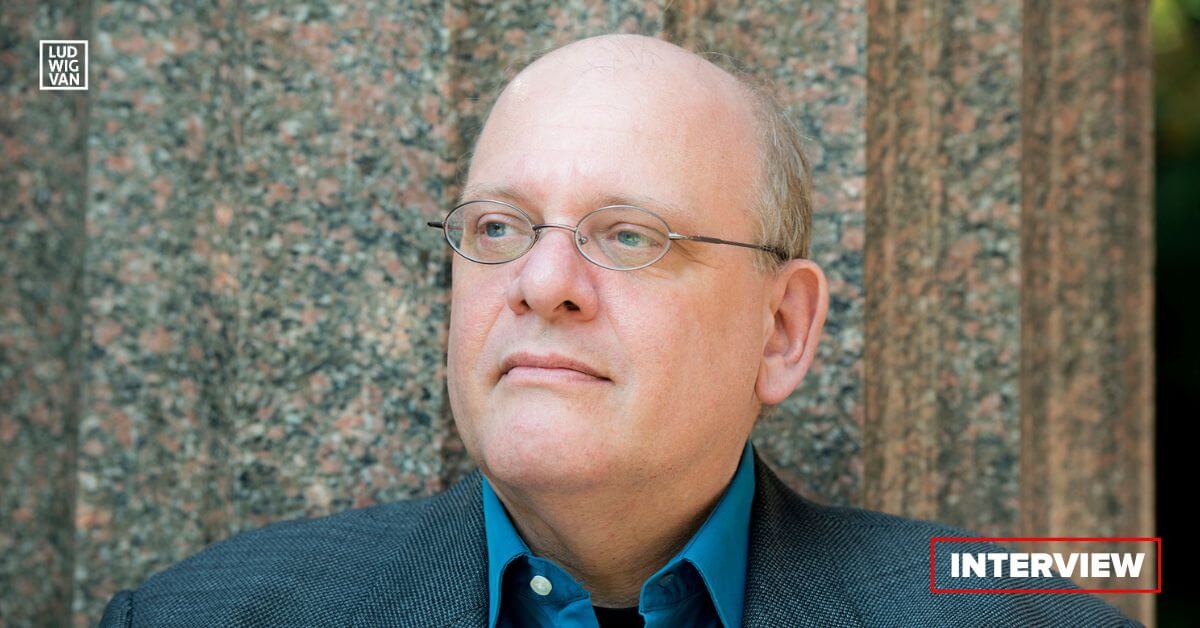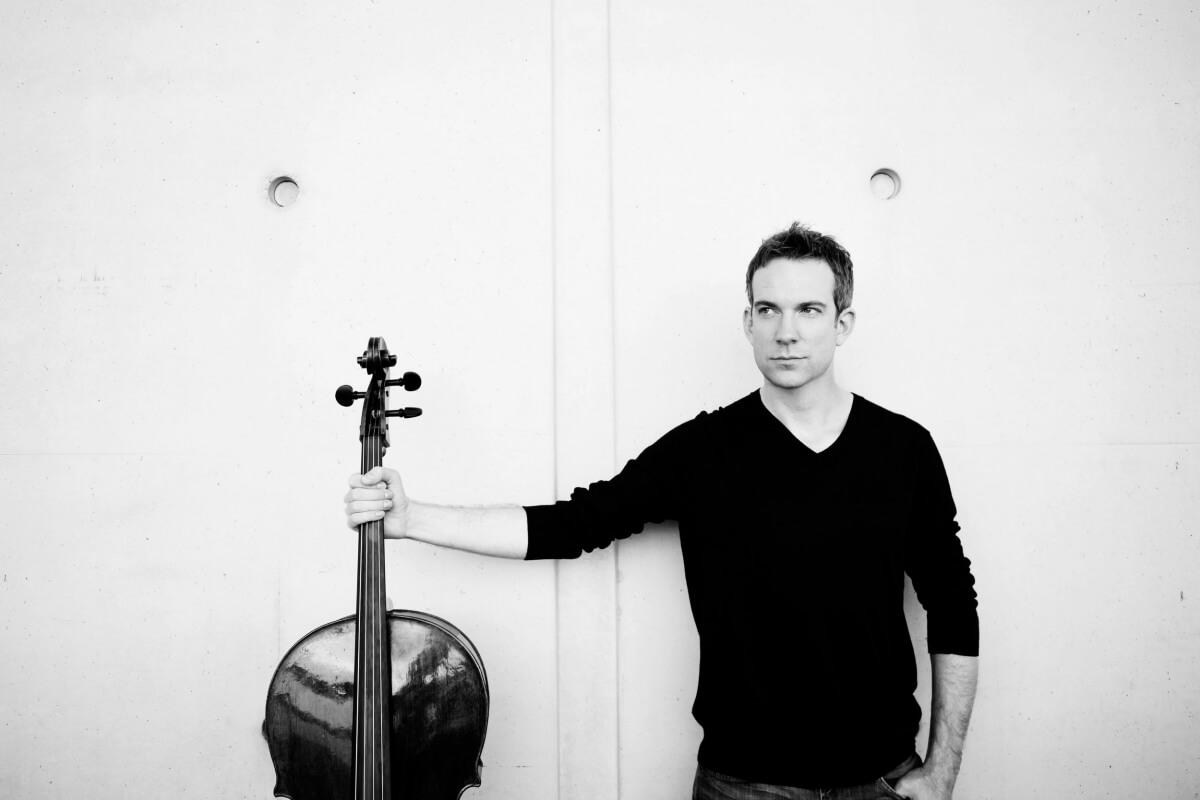
Finnish conductor Osmo Vänskä will lead the Toronto Symphony Orchestra in its North American premiere of a cello concerto by noted German composer Detlev Glanert. The concerto was written for German-Canadian cellist Johannes Moser, who’ll be joining the TSO for the performances on March 27 and 28.
Edvard Grieg’s Suite No. 1 from Peer Gynt begins the concert, and after intermission, Vänskä will lead the TSO through compatriot Sibelius’ Symphony No. 2 in D Major, Op. 43.
Detlev Glanert: Cello Concerto
It’s a busy year for Glanert. His new opera The Jewish Woman of Toledo premiered in Dresden in February, and his Percussion Concerto, with the Arctic Philharmonic, and Christoph-Mathias Mueller in Bodø, Norway, gets its world premiere in May.
Detlev is probably best known for his operas, although he has written other works for orchestral instruments and ensembles.
He began playing the trumpet at age 11, and his studies in composition in his 20s in Koln. It was his 1995 opera Der Spiegel des grosses Kaisers, which won an award, that first put his work into the public spotlight.
“I wrote a little piece for cello and pianoforte a hundred years ago,” he laughs. “It is the first cello concerto,” he acknowledges of the new piece. “I had in mind always, my whole life, to write a cello concerto. I was very happy when Johannes came with the idea. The cello is something fascinating.”
He loves the cello in particular for its range, which encompasses the human vocal range from high to low. He also says that the relatively low number of cello concerti in general added to his enthusiasm for the project. “I was very happy to contribute to that. The cello is so interesting, it can contain the human voice,” he adds.
He enjoyed working with the idea of the cello as one voice against the many other voices of the orchestra. “It’s so interesting,” he says. “You can construct dialogues, conflicts.” You can create drama, in other words, and other effects. “I tried to put that in the cello concerto in a very specific way.”
The Cello Concerto was composed during the pandemic, leading up to the outset of the war in Ukraine. “There are some shadows of that,” he says, noting there were many Ukrainian refugees in Berlin. “You really feel it here.”
Glanert says that the initial impetus also came from Moser, who was eager to play one of Glanert’s pieces.

Johannes Moser
German-Canadian cellist Johannes Moser was born into a musical family, and began his studies of the cello at age eight. At 19, he became a student of noted Lithuanian cellist and professor David Geringas. Johannes took first prize at the 2002 Tchaikovsky Competition, along with the Special Prize for his interpretation of the Rococo Variations. In 2014, he won the Brahms Prize.
Johannes is a sought after soloist and chamber musician. He has performed with the Berliner Philharmoniker, New York Philharmonic, Los Angeles Philharmonic, Chicago Symphony, BBC Philharmonic at the BBC Proms, London Symphony Orchestra, and Symphonieorchester des Bayerischen Rundfunks, among others. He has worked with Riccardo Muti, Lorin Maazel, Mariss Jansons, Zubin Mehta, Vladimir Jurowski, and Christian Thielemann, and many other leading conductors.
Johannes is a recording artist with a growing (and award-winning) discography that includes concertos by Dvořák, Lalo, Elgar, Lutosławski, Dutilleux and Tchaikovsky.
He practices the Cadenza of the Glanert Cello Concerto:
The Cello Concerto
The concerto was a co-commission of the TSO along with the Luxembourg Philharmonic Orchestra, the Cologne Philharmonie (KölnMusik), and commissioned by Elizabeth und Justus Schlichting.
Moser performed at its world premiere in Luxembourg, with the Luxembourg Philharmonic Orchestra and conductor Gustavo Gimeno on January 19. The German premiere took place at the Philharmonie in Cologne two days later.
It consists of three movements, with an opening characterized by the interplay of soloist and orchestra. The second resembles a waltz, with an upbeat and hopeful mood for the final movement. Slow-fast-slow — it’s not a typical concerto form.
“It’s quite unusual,” he notes. “This is the opposite of a normal concerto.”
The first movement begins with a positive note that is soon put into conflict by counter melodies. “There is a battle starting,” he explains. “The second movement is an outraged presto. The third movement is a song,” he says, one that he describes as hopeful.
However, in opera, as he points out, the point is often to end in a darker place. “The message is — let’s not do this in real life.”
Music, as he points out, is connected to both past and future. “Like Janus, it looks to both sides,” he says. As such, it’s an expression of who we are in the present moment. “Music describes where we are now.”
Glanert reports that its world and German premieres were well received. “I was quite — anxious is the wrong word, but I wasn’t sure how it would react to the audience. It’s not a fun piece,” he says. “It’s not especially joyful.”
Any misgivings, however, proved baseless. “It was very, very well received. Johannes played it wonderfully.” Unlike many Toronto audiences, German audiences tend to be more demanding, and standing ovations are pretty rare.
“Music should be a thing that we talk about afterwards,” he says. “That would be an ideal world. I would like to take the audience on a [trip] to an unknown land,” he laughs. “That comes clearly from my opera past.”
- More details about the TSO’s concert on March 27 and 28, and tickets, available [HERE].
Are you looking to promote an event? Have a news tip? Need to know the best events happening this weekend? Send us a note.
#LUDWIGVAN
Get the daily arts news straight to your inbox.
Sign up for the Ludwig Van Toronto e-Blast! — local classical music and opera news straight to your inbox HERE.
- INTERVIEW | Composer Ari Kinarthy And Director Jeff Lee Petry Talk About Ari’s Theme, Premiering At Hot Docs - April 26, 2024
- PREVIEW | Creators & Performers Natalya Gennadi And Kristine Dandavino Talk About Grandma’s Shawl - April 26, 2024
- PREVIEW | Artistic Director Emily Cheung Dives Into Little Pear Garden Dance Company’s History & 30th Anniversary Peformance - April 26, 2024



